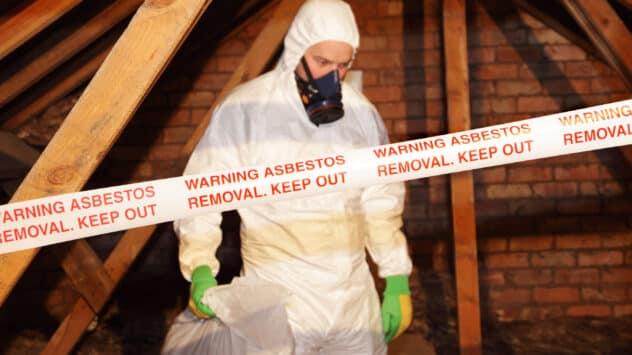
A Triumph and Disgrace: The Very Slow Road to Banning Asbestos
Like almost all things chemical in the United States, the recent announcement by the Biden administration that it is banning a major form of asbestos is both a triumph and a disgrace.

Like almost all things chemical in the United States, the recent announcement by the Biden administration that it is banning a major form of asbestos is both a triumph and a disgrace.

When I read news about the latest IPCC climate assessment report, or predictions of imminent mass extinction, I admit that the statistics — the exact degree of warming, the number of feet sea levels will rise, how many species will die — find fewer footholds in my brain than the overwhelming sorrow they elicit.

This fizzy, fermented tea is great for gut health, but the single-use plastic and glass bottles it’s packaged in are bad news for the environment. Instead of shelling out four dollars for a single bottle of kombucha at the corner store, try making your own at home with a few simple ingredients. What Is Kombucha? […]

St. James Parish residents are suing the Louisiana parish over its approval of multiple polluting petrochemical facilities in two Black districts there.

Swiss air quality technology company IQAir released its fifth annual assessment of particulate matter (PM) 2.5 pollution in cities, nations and regions around the world and found that only six countries met the World Health Organization’s (WHO) updated safe levels of the deadly air pollutant.

Two new studies highlight the vulnerability of California forests. Climate change, mainly caused by the extraction and combustion of fossil fuels, has heated the atmosphere faster than conifer forests in the Sierra Nevada mountains can adapt, shifting their ideal elevation 600 feet above where it was nearly a century ago, according to a study published in PNAS Nexus.

From supplements to skin care, collagen has been buzzing in the wellness world. But this popular ingredient is linked to the deforestation of tropical forests in Brazil, according to a recent investigation.

Only 0.001 percent of the world’s population breathed in air considered safe by the World Health Organization (WHO) in 2019.

Less than two weeks after train cars filled with hazardous chemicals derailed in Ohio and caught fire, a truck carrying nitric acid crashed on a major highway outside Tucson, Arizona, killing the driver and releasing toxic chemicals into the air.